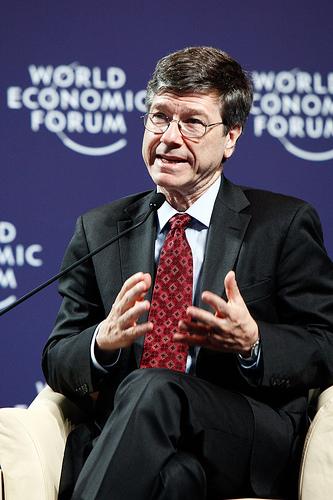Jeffrey Sachs—economist, author and United Nations adviser—has publicly launched his candidacy to become the next World Bank president. Several prominent progressives whom we respect, including Congressman John Conyers, the Center for Economic and Policy Research’s Mark Weisbrot, and Just Foreign Policy’s Robert Naiman, have publicly endorsed Sachs’s candidacy. We disagree.
![Jeffrey Sachs [Photo by World Economic Forum/ Flickr]](https://149358047.v2.pressablecdn.com/wp-content/uploads/2012/03/JeffreySachs-266x400.jpg)
Jeffrey Sachs [Photo by World Economic Forum/ Flickr]
But this does not make Sachs the right person to lead the World Bank. For starters, this is a moment when we should be actively seeking a candidate from the South—someone who has walked the walk to embrace a bottom-up approach to development. Many names come to mind, including the South Centre’s Martin Khor and Charles Abugre of the UN Millennium Campaign. The so-called gentlemen’s agreement that allows the US government to select an American to head the bank was wrong in the 1940s; it is even more illegitimate now.
Moreover, Sachs’s overall policy record remains disturbing. Over two decades ago, he burst onto the scene as an adviser to governments that adopted “shock therapy” to tame inflation. In countries like Bolivia and Russia, the austerity became infamous for the havoc it wreaked on ordinary people.
Today, Sachs’s approach to development remains, at its core, top-down and formulaic. Elsewhere, we have critiqued Sachs’s book The End of Poverty for overemphasizing the power of trade and new technologies to put the poorest on a ladder to modernization. (He once famously said, “My concern is not that there are too many sweatshops but that there are too few.”)
Sachs has applied this approach in his well-publicized Millennium Villages in Africa. African colleagues have relayed criticisms that mesh with our own. Through these villages, Sachs has been a promoter of outside money to pay for (among other things) chemical-dependent “green revolution” farming. One village alone is reported to have had a $50,000 a year fertilizer bill. While this undoubtedly can lead to an initial boost in agricultural yields, it is hardly sustainable in the longer run economically (yields dwindle as soils get compacted from chemical inputs), socially (farmers drown in debts), or environmentally (fossil fuel-based chemical fertilizers contribute to climate change).
The reality of the villages’ chemical-dependent agriculture undermines Sachs’s reputation as an expert on climate change and other environmental issues. UN Special Rapporteur on the Right to Food Olivier de Schutter has pulled together years of evidence to show that small-scale farmers can grow ample food and can reduce fossil-fuel emissions by shifting from chemical to “agro-ecological” farming. The international small-scale farmer-led Via Campesina movement has embraced such an environmentally sustainable “food sovereignty” approach.
The next World Bank president should support this shift. Farmers and the poor need more control over natural resources, not a transfer of aid-dependent inappropriate technologies which serve neither farmers, nor consumers, nor the planet.
It is also time for a World Bank president with a bit of humility. Sachs has never, to our knowledge, apologized to those who suffered as a result of his early adherence to austerity measures, just as the bank has never apologized nor made reparations for its mistakes. The bank needs a president who cannot just look back at past mistakes, acknowledge them and learn from them but who also understands the real costs of such mistakes. Children starve. Natural resources are plundered. People die. If it is to have any legitimacy whatsoever, the World Bank needs a president who can gain the trust of and then learn from the experiences of farmers and fisherfolk and the urban poor who are all too often the victims rather than the beneficiaries of faulty World Bank loans and conditions.
